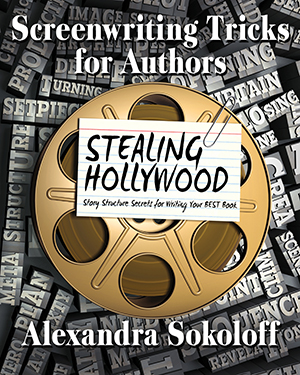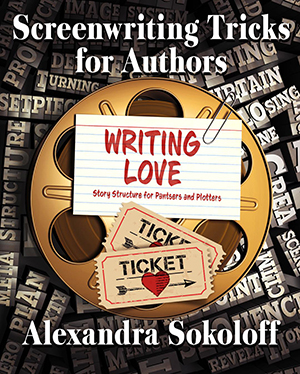

Write your first book—or your best book yet—
using the storytelling tricks of your favorite movies
Level up your writing – with holiday movies!
As we get down to the wire on these holidays—I mean, move joyously into the festive season—it gets harder and harder to find time to write. I know! So I wanted to do a movie-centric post to help you get in some stealth craft work during family time. NOTHING will take...
Nanowrimo Now What? — Rewriting
So you did Nanowrimo! Huzzah!! Now what? Or maybe you didn’t do Nano, but you now have a rough draft—maybe a very, very, very rough draft— of your book or script. Huzzah!! Now what? First of all, Take a break. If at all possible, when you’ve finished a first draft,...
Nanowrimo Week 2: Team, Training, Tests
Here’s a simple way to remember the basics of Act II: Part 1—the second quarter of your book or script: Team, Training, Tests THE TEAM is the friends, relatives, colleagues, and/or experts that will help the hero/ine get their DESIRE. The hero/ine’s TEAM will be...
Nanowrimo daily prompts
For the month of Nano I’m doing a weekly post running down the most important story elements of each Act, with links to expanded articles on each element. In case you missed them, here are the Act I posts: Nanowrimo: 10 Essential Elements of Act I Nanowrimo Act I...
Nanowrimo: 10 Essential Elements of Act I
Here are ten must-have story elements of Act I, no matter what genre you’re working in! If you can write out these elements of your book or script, you will be in great shape to launch into Nanowrimo, if you’re doing it—or to jump-start your book or script, whether...
Is my story idea BIG enough? — What is High Concept?
“Write what you most want to write” is always good advice. But let’s face it. If you want to make money at writing, there are business considerations to— consider. So let’s talk about High Concept and the Big Book. But first: If this is your very first book or script,...
What’s Your PREMISE? — Identifying the ACTION LINE of your story
This is my entire message for today: WRITE OUT YOUR PREMISE. Whether you’re doing Preptober/Nanowrimo or not — no matter where you are in your book or script— I really urge you to do this TODAY. Writing out your Premise sentence is an exercise you should be doing...
Preptober and Nanowrimo: Write that book!
In case there’s anyone who doesn’t know, November is Nanowrimo – National Novel Writing Month. The goal of Nanowrimo is to bash through 50,000 words of a novel in a single month. I could not be more supportive of this idea—it gives focus and a nice juicy competitive...
Writing Act III of a book or script: The New Plan
Here, very simply, are the broad strokes of Act III of a book or script: At the end of Act II: Part 2 (about p. 300 in a 400-page book, about 90 minutes in to a 2 hour movie) everything crashes in an All is Lost Moment, or Black Moment, or Visit to Death. And then,...
Use that Back to School energy for your writing!
It’s September, and I don’t know about you, but this time of year I always get this rush of nervous, excited, Back to School energy. As writers, we can use this to our advantage! If you’ve been hedging about writing that book or script, now is a great time to commit...


